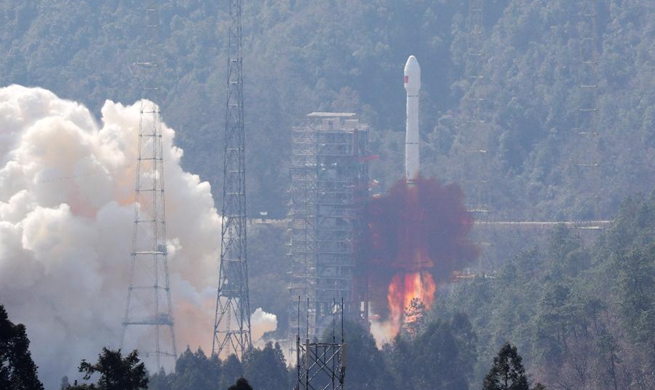WASHINGTON, Feb. 12 (Xinhua) -- American scientists have found that patients with Huntington's disease, a fatal genetic illness that causes the breakdown of nerve cells in the brain, have up to 80 percent less cancer than the general population.
In a study published on Monday in the journal EMBO Reports, scientists from Northwestern University have discovered why Huntington's is toxic to cancer cells and thus have managed to harness it for a novel approach to treat cancer.
Huntington's is caused by an over abundance of a certain type of repeating RNA sequences in one gene present in every cell. The defect turns out to be highly toxic to tumor cells, according to the paper.
"This molecule is a super assassin against all tumor cells," said senior author Marcus Peter, the Tom D. Spies Professor of Cancer Metabolism at Northwestern University Feinberg School of Medicine. "We've never seen anything this powerful."
Researchers have delivered the "assassin" molecule in nanoparticles to mice with human ovarian cancer. It significantly reduced the tumor growth with no toxicity to the mice, and the tumors did not develop resistance to this form of cancer treatment, Peter said.
They also used the molecule to treat human and mouse ovarian, breast, prostate, liver, brain, lung, skin and colon cancer cell lines. The molecule killed all cancer cells in both species.
The paper's lead author Andrea Murmann, assistant professor with Northwestern Medicine School, attributed the cause to richness in the C and G nucleotides, molecules that form the building blocks of DNA and RNA.
In the case of people who have Huntington's, the gene owned by people who have Huntington's has too many repeating sequences of the triplet sequence CAG.
Peter's team is now refining the delivery method to increase its efficacy in reaching the tumor and figuring out how to stabilize the nanoparticles so they can be stored.
"We believe a short-term treatment cancer therapy for a few weeks might be possible, where we could treat a patient to kill the cancer cells without causing the neurological issues that Huntington's patients suffer from," Peter said.

















